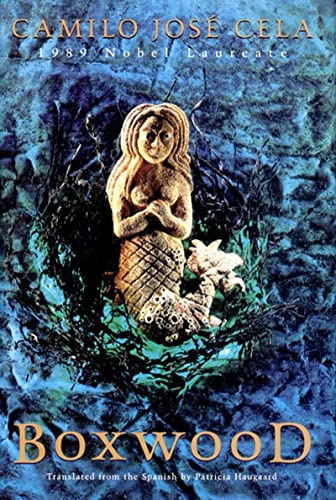Comments
-
TPF is moving: please register on the new forumAnyway it's a bit misleading, because it includes a one-off payment of £200. — Jamal
Well, the result is satisfactory; it doesn't matter how it was done. :lol: -
TPF is moving: please register on the new forumBut change is the only constant, and I am grateful I didn't have to do the shopping for a new platform. Thank you, Jamal. — BC
Gracias, BC. :up: :up: -
TPF is moving: please register on the new forumA reasonable decision.
February 26th is the last day of this sacred place.
But don't get sad! We are moving to a new platform, and this one will stay as an archive. -
TPF is moving: please register on the new forum
-
Currently ReadingHe has promised us a report when he’s finished. — T Clark
I will make the report for sure, but I don't know if I will post it here or in The Shoutbox. -
Incorrectly warned
After reading your conversation with Ecurb in context, I don't think he truly wanted to bully or troll you.
The thread where you are debating is called "my truth", and I believe that Ecurb is giving you examples of his arguments related to the point of the thread.
Perhaps you felt uncomfortable because he used your nickname (not your real name or identity. It is just a forum profile) on awkward situations. If he had said, 'A masked man who looked suspiciously like javi2541997 had seized a young child and was holding a knife to her throat [...] or Kindly Ecurb (who is also brilliant and handsome) was being questioned by an ugly, jack-booted Gestapo who looked suspiciously like javi2541997', would you have felt better?
I truly believe that Ecurb just wanted to give examples about why "manipulative language" does this and affects that. -
Just PoemsLament For Ignacio Sánchez Mejías by Lorca.
1. Cogida and death
At five in the afternoon.
It was exactly five in the afternoon.
A boy brought the white sheet
at five in the afternoon.
A trail of lime ready prepared
at five in the afternoon.
The rest was death, and death alone.
The wind carried away the cottonwool
at five in the afternoon.
And the oxide scattered crystal and nickel
at five in the afternoon.
Now the dove and the leopard wrestle
at five in the afternoon.
And a thigh with a desolated horn
at five in the afternoon.
The bass-string struck up
at five in the afternoon.
Arsenic bells and smoke
at five in the afternoon.
Groups of silence in the corners
at five in the afternoon.
And the bull alone with a high heart!
At five in the afternoon.
When the sweat of snow was coming
at five in the afternoon,
when the bull ring was covered with iodine
at five in the afternoon.
Death laid eggs in the wound
at five in the afternoon.
At five in the afternoon.
At five o'clock in the afternoon.
A coffin on wheels is his bed
at five in the afternoon.
Bones and flutes resound in his ears
at five in the afternoon.
Now the bull was bellowing through his forehead
at five in the afternoon.
The room was iridescent with agony
at five in the afternoon.
In the distance the gangrene now comes
at five in the afternoon.
Horn of the lily through green groins
at five in the afternoon.
The wounds were burning like suns
at five in the afternoon.
At five in the afternoon.
Ah, that fatal five in the afternoon!
It was five by all the clocks!
It was five in the shade of the afternoon! -
Currently ReadingKnitting up a jersey is lovely, but I'd rather go fishing for some mussels.
Wait – I think it might be a good idea to pick up a book about fishing or the behaviour of mussels next time. -
Donald Trump (All Trump Conversations Here)
They will be able to vote in the next municipal elections, not in the coming ones, because they also need the minimum legal residence in their local city. Apart from what I explained, this is another benefit from Sanchez's decree. Since they are now in a legal status and documented, the time starts to count to take part in the next municipal elections.
By the way, I can't see the problem because. A) As a Spaniard myself, I would also be able to vote in the municipal elections of those countries (Paraguay, Bolivia, Argentina...), so I would be hypocritical to criticise this; B) not all the immigrants are part of the reciprocal voting agreement – for example, there are also many persons from Angola and Senegal, but we do not have these kinds of treaties with their governments. -
Donald Trump (All Trump Conversations Here)
It's in Spanish, but here they are:
https://www.boe.es/boe/dias/2022/11/05/pdfs/BOE-A-2022-18150.pdf
https://www.boe.es/boe/dias/2010/08/27/pdfs/BOE-A-2010-13463.pdf
The reciprocal voting treaty with Argentina (for example, among others):
https://www.congreso.es/public_oficiales/L9/CORT/BOCG/A/CG_A140.PDF
Uruguay:
https://www.congreso.es/public_oficiales/L9/CORT/BOCG/A/CG_A281.PDF
Paraguay:
https://www.boe.es/boe/dias/2010/06/21/pdfs/BOE-A-2010-9770.pdf
United Kingdom (English):
https://assets.publishing.service.gov.uk/media/5c8b809440f0b640d24a45a5/CS_Spain_2.2019_Elections.pdf -
Donald Trump (All Trump Conversations Here)There's also the potential for cultural clash, but I don't put as much into that as much who have reacted to it globally. — AmadeusD
It's hard to see a cultural clash in this context. Most of them are from South America; they share the same language, religion, ethos, etc. They are like siblings or cousins to us.
health care registers — AmadeusD
Our health care system is already very screwed. It is not their fault.
names on voter rolls (Municipal - the ones that matter) — AmadeusD
They can only enter the voter rolls if they get the nationality and there is a reciprocal agreement–this decree is only documenting them legally. The government is not giving them the Spanish nationality, and if this were the case, not everyone would have the right to vote in municipal elections, because not all countries of these immigrants have a reciprocity agreement with us.
Article 176 of Spanish Constitution:
Without prejudice to the provisions of Title I, Chapter I of this Law, the right to vote in municipal elections is enjoyed by foreign residents in Spain whose respective countries allow Spaniards to vote in these elections under the terms of a treaty.
The treaty is regulated in our LEY ORGÁNICA 5/1985 de 19 de junio, del Régimen Electoral General and it says:
The citizens of Norway, Ecuador, New Zealand, Colombia, Chile, Peru, Paraguay, Iceland, Bolivia, Cape Verde, the Republic of Korea, the United Kingdom and Trinidad and Tobago who are over 18 on the day of voting and who are not deprived of the right to vote, may vote in municipal elections in Spain.
For this purpose, they must be in possession of the corresponding residence permit in Spain.
Must have been legally resident in Spain for the time required by the relevant agreement (five years at the time of application for registration on the electoral roll and, in the case of Norwegian nationals, three years on the day of voting; no temporary requirement is required in the case of New Zealand). -
Donald Trump (All Trump Conversations Here)
The process is tedious and slow here too. I think there is a misinterpretation of the concepts. Sanchez is conceding the citizenship to 500,000 immigrants, yes. But this is not equal to becoming Spanish. It is just that these persons are now documented to be hired legally in the labour market. Without these papers, they are hard to hire, and if they are, many businessmen exploit them because they are not in a current legal status. My view about this is that Sánchez wanted to make a movement against the employers. After this, those people now have the right to be hired in better conditions.
But it is important to clarify that they do not have the right to vote in the Spanish elections, nor do they start receiving grants. This is a lie. -
Donald Trump (All Trump Conversations Here)The prime minister is the president of the Socialist International and from the Spanish Socialist Workers Party. That’s what we call a “commie” over here. — NOS4A2
I understand your view. Yet, PSOE (Spanish Socialist Workers Party) gave up on Communism and Marxism after winning the 1982 elections because they wanted to make Spain a member of both the EU and NATO. It is hard to explain because it is true that they still use "socialist" in their acronym, but they always repeat that they are a social-democratic political party inspired by the left-wing parties of Sweden and the Labour Party of the UK. I do not think these are real commies in the pure sense of the word. Furthermore, there are more leftist political parties in the Congress which accuse PSOE of being neoliberal. Imagine those! These are real commies: United Left.
I have never called you a fascist. Believe it or not, I agree with you on many of your points – mainly when you claim that European countries have grown very dependent on the USA. This is true.
It is just that I didn't get why the news of documenting 500,000 people here went around the world. I think some folks exaggerated on his reactions towards this. -
Donald Trump (All Trump Conversations Here)
Yes. I had a nice and interesting exchange of ideas with you both, and I agree mostly with everything except that we are not militarily relevant globally nor do we have a strong say in Brussels.
I'm joking. I am pretty aware of the limitations of the peninsula I live in. :rofl: -
Donald Trump (All Trump Conversations Here)
Honestly, I don't think Trump/Musk's opinions on the internal politics of European countries are feigned or with a rhetorical purpose. It seems to me that they want to interfere in our opinions and thoughts. If we were that irrelevant, I still don't get why Musk reacted with a "Wow" on his X account for just documenting the undocumented.
Since the political direction of the government of my country is to not spend really much on NATO, respect internal law and try to be as little polluting as possible, it is obvious that Sánchez will always confront Trump/Musk. The internal political direction regarding immigration in my country might not be interesting to anyone, but Musk and Trump know very well what they are doing – spreading around the world their "culture war" and making this and that "better again"; and Spain is not an exception in their interests.
This is a common thought that I share with friends from other Spanish-speaking countries (South America, mainly). Perhaps Trump doesn't care about Paraguay or Uruguay, but when the governments of these countries turn into a "commie" bureau, you will see how he quickly starts to care about South America and wants to spread "democracy" and "free elections" over there. -
Donald Trump (All Trump Conversations Here)Yet you keep electing people who want to take a large part of your income in order to spend it on illegals, other people, themselves, knowing full well that if you find a higher salary they’ll just take more. — NOS4A2
OK, NOS. Fair enough.
I believe I understand the reality of my country better than anyone else here, just as you understand Canada.
Yes, Spain is a country with heavy taxation. Everyone is angry about this here—myself included. However, I don't think the money goes to illegals. Furthermore, the problem is that we don't really know where the public budget is spent.
Sánchez is a liar, I agree. I will not vote for him in the next elections. I think I will not vote for someone. Yet I think this issue should be irrelevant to Donald Trump and Elon Musk. The latter posted a "Wow" on his X account, showing a video of immigrants waiting for something in a supposed public administration in Spain. Apart from being a hoax, I don't really get why he cared a lot about this. Will these 500,000 immigrants steal SpaceX or pickpocket him? It is something that only concerns Spain, and I dislike how often the American policy pokes its nose in other countries. -
Donald Trump (All Trump Conversations Here)
Dude, that happened a looooong time ago.
It is not time to live with the nostalgia of the past. Spaniards want to live in a country with affordable houses and better salaries. Our history cannot fix this.
You said "turns into a commie shithole" but trust me, mate—haven't we turned into that since we lost our last possessions in the Caribbean Sea to the USA in the 1898 war? -
Donald Trump (All Trump Conversations Here)Meanwhile, Spain moves to legalize the illegals.
“ Madrid points to ‘positive impact’ of migration as it moves to grant 500,000 undocumented people legal status.” — NOS4A2
We get to watch in real time as a once-powerful empire turns into a commie shithole. — NOS4A2
It never was Spain that was great, it was Portugal. — Punshhh
Relax... leave my country alone.
We don't have law enforcement agencies which shoot people in the streets or folks who jump from the balcony every bloody summer. We are not perfect, but at least we are not like you. -
Currently ReadingExplosion in a Cathedral (also translated as The Age of Enlightenment) by Alejo Carpentier.
-
Beautiful ThingsI remember the little girl sitting at the table with peaches. — T Clark
Girl with Peaches by Valentin Serov.
Yeah, what a gorgeous painting! -
Beautiful ThingsAyamonte. La pesca del atún. Tanslation: Ayamonte. The fishing of the tuna.

This painting of Sorolla belongs to a collection of canvases called Provinces of Spain.
The series was commissioned by American expert on Hispanic studies and founder of Hispanic Society of America (HSA), Archie Huntington.
Sorolla depicted the customs, costumes, and traditions of regions of Spain. But this painting is important. Rather than depicting the average clichés and stereotypes of Andalucía, he depicted a very common practice of southwest Andalucía: fishing.
As I said multiple times, the tuna from the Atlantic coast of the Gulf of Cádiz is excellent. Times have changed, and now fishing is different than when Sorolla painted this canvas. This is why it is important: it serves as a testament to how things were before—charming, full of life, with the sun reflecting on the sea and the blood of the tuna. I can even smell it. Amazing. -
Donald Trump (All Trump Conversations Here)Kosovo — Questioner
Many countries do not recognise Kosovo as a sovereign country. Mine is an example.
On the other hand, it surprised me that Belarus appears in something relatively important—I thought everybody forgot Lukashenko's dictatorship. -
Donald Trump (All Trump Conversations Here)It was set up (by Europe - not imposed by American) to prevent Soviet encroachment, — AmadeusD
The irony is palpable when we have to set something up to prevent Soviet encroachment, but we look the other way when this attitude comes from Washington. What a terrible circus the politics are, mate. I don't like it.
I agree with the rest of your post. -
Donald Trump (All Trump Conversations Here)Rutte definitely is always saying that thanks to Trump, NATO countries are increasing their defense expenditure, — ssu
He was against the reckless expenditure when he was the prime minister of NL; now he is pushing for more expenditure just to woo Trump. Are they clowns, or am I the blind dude who is not seeing what is going on?
And lastly, NATO is actually an US created organization for US objectives, which the orange idiot never has understood — ssu
That's what I was about to say. It is hard to be a "neutral" NATO secretary general when the institution is oriented to protect and spread American interests, presence, and culture. I don't really want to see this conflict escalating, and I wish Greenland the best in their future, but if this [the issue] ends up screwed, at least we will have a reason to finally dissolve NATO and focus on something European—whatever it would be called or managed. -
Donald Trump (All Trump Conversations Here)Rutte. — ssu
I completely dislike him. What a twat.
A thinner version of Donald Trump with a Mickey Mouse face. The way he woo Trump makes me upset. Disgusting at its best.
I guess he forgot he's European when he changed his NL suit for the NATO one. -
The News DiscussionAnother fatal high-speed train crash in Spain. At least more than 20 people have been killed. :sad:
High-speed train crash in southern Spain leaves at least 21 dead.
UPDATE: The death toll is 39.
High-speed train derailed, jumped onto the track in the opposite direction and crashed into an oncoming train on Sunday in southern Spain.

-
Donald Trump (All Trump Conversations Here)Starting on February 1st, 2026, all of the above mentioned Countries (Denmark, Norway, Sweden, France, Germany, The United Kingdom, The Netherlands, and Finland), will be charged a 10% Tariff on any and all goods sent to the United States of America. On June 1st, 2026, the Tariff will be increased to 25%. This Tariff will be due and payable until such time as a Deal is reached for the Complete and Total purchase of Greenland.
As I stated a few days ago regarding Machado's medal gift, he truly believes the world is a Monopoly game, and the conflicts can only be approached with deals or trading instead of diplomacy. He reminds me of an Ottoman emperor who demands that his vassal states pay tariffs to avoid being crushed by his strength. -
Donald Trump (All Trump Conversations Here)
I agree.
He truly believes that everything can be obtained by the "art of the deal," as he would say, even when some things are valueless. It is frustrating that the near future of a country depends on this kind of traffic. -
Donald Trump (All Trump Conversations Here)
I also got surprised when I watched it on the news. There are no limitations for Trump when we talk about classless gestures, indeed.
However, I understand the movement of Machado – she tried to "woo" him with the aim of finding a way to be recognised as the legitimate candidate for the Venezuelan government. This says a lot about her. She is ready to drop off many of her things just to finally start addressing and solving the big social issues of Venezuela. The problem is she (and her nation) depends on one of the biggest twats that the Americans have ever voted for. -
Currently ReadingMircea Cărtărescu — Manuel
¡Excelente! I really like Mircea. What an amazing writer!
javi2541997

Start FollowingSend a Message
- Other sites we like
- Social media
- Terms of Service
- Sign In
- Created with PlushForums
- © 2026 The Philosophy Forum

